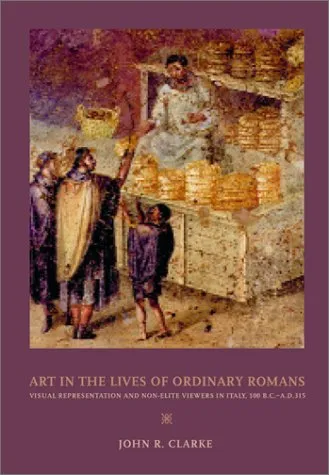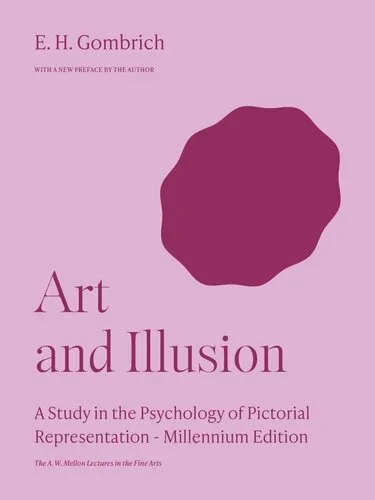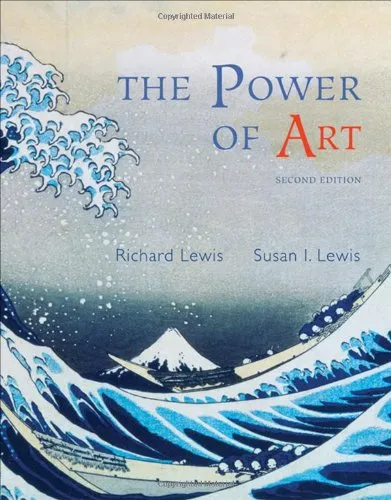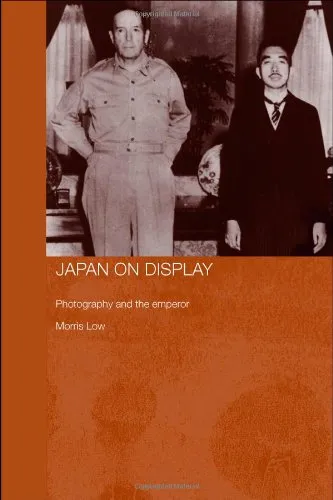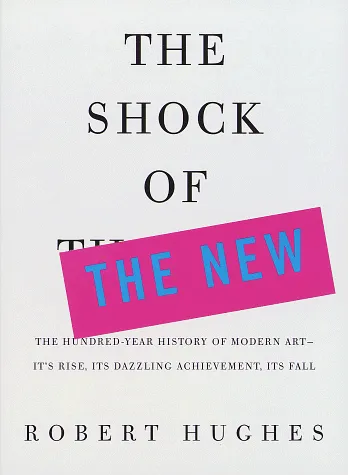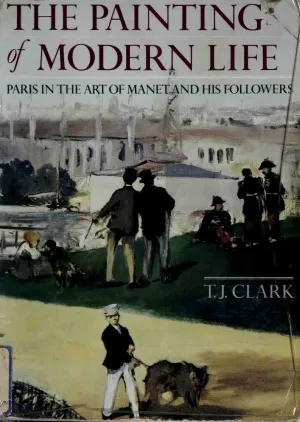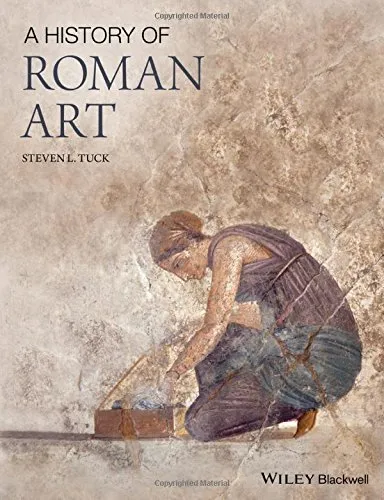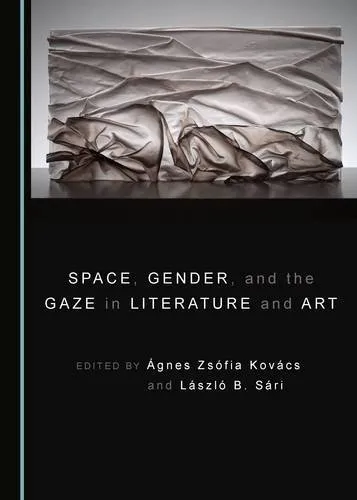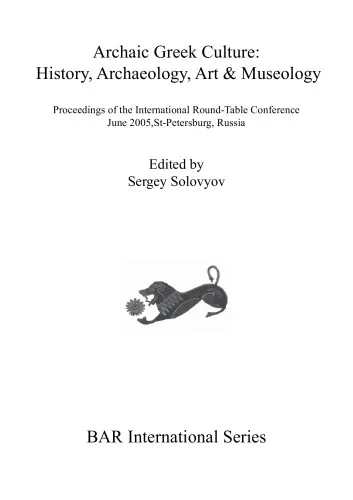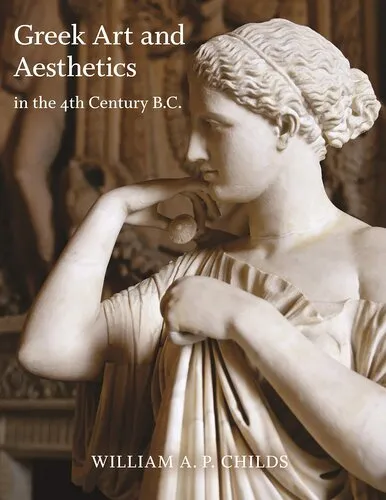Art in the Lives of Ordinary Romans: Visual Representation and Non-Elite Viewers in Italy, 100 B.C.-A.D. 315
4.5
بر اساس نظر کاربران

شما میتونید سوالاتتون در باره کتاب رو از هوش مصنوعیش بعد از ورود بپرسید
هر دانلود یا پرسش از هوش مصنوعی 2 امتیاز لازم دارد، برای بدست آوردن امتیاز رایگان، به صفحه ی راهنمای امتیازات سر بزنید و یک سری کار ارزشمند انجام بدینکتاب های مرتبط:
مقدمه کتاب
کتاب Art in the Lives of Ordinary Romans: Visual Representation and Non-Elite Viewers in Italy, 100 B.C.-A.D. 315 نوشتهٔ John R. Clarke به مطالعهٔ هنر در زندگی روزمرهٔ رومیان عادی میپردازد. این کتاب یکی از تحقیقات جامع و متفاوتی است که نقش هنر و تصاویر در زندگی روم باستان را بررسی میکند، با تمرکز بر کسانی که به صورت سنتی در دستهٔ نخبگان جامعه قرار نمیگرفتند.
خلاصه کتاب
در این کتاب، نویسنده به بررسی نحوهٔ درک و استفادهٔ عمومیهای غیرنخبه از تصاویر و هنرهای بصری میپردازد. او با بهرهگیری از شواهد باستانشناسی، متون، و تصاویر باقیمانده، تحلیل دقیقی از استفاده و معنای هنر در زندگی روم قدیم ارائه میدهد. نویسنده نشان میدهد که چگونه هنر در فضاهای عمومی و خصوصی، نه تنها به عنوان زینتی بلکه به عنوان ابزاری برای انتقال معنا و تفکر در زندگی اجتماعی و فرهنگی مردم عادی روم عمل کردهاست.
نکات کلیدی
- تحلیل دقیق نقش هنر در زندگی روزمرهٔ افراد غیرنخبهٔ روم باستان.
- بررسی چگونگی درک و تفسیر مختلف بین مخاطبان نخبگان و عموم مردم.
- استفاده از هنر به عنوان ابزاری برای آموزش و انتقال مفاهیم اجتماعی و فرهنگی.
- شواهد باستانشناسی که بر چگونگی تفسیر هنرهای بصری تأکید دارند.
نقلقولهای معروف از کتاب
"Understanding the art of ordinary Romans is key to understanding their world. It's the imagery that surrounded them daily that tells the true story of their lives."
اهمیت این کتاب
این کتاب به دلیل نگرش منحصر به فردش در بررسی تاریخ اجتماعی و فرهنگی روم بسیار مهم است. بیشتر تحقیقات در علوم باستانشناسی و تاریخ هنر بر افراد برجسته و نخبگان جامعه تمرکز دارند. این کتاب با بررسی تأثیر و اهمیت هنر در زندگی روزمرهٔ مردم عادی، دیدگاه جدیدی ارائه داده و به مخاطبان خود درک عمیقتری از جامعه رومی ارائه میکند.
Introduction to "Art in the Lives of Ordinary Romans"
Welcome to an enriching exploration of the vibrant visual culture that flourished amidst ordinary Romans from 100 B.C. to A.D. 315, offering a profound lens into how art deeply permeated and influenced everyday lives.
Detailed Summary of the Book
The book "Art in the Lives of Ordinary Romans" challenges the conventional narrative that often prioritizes the grandiose artistic contributions of elite Roman society. Instead, it focuses on the visual culture of the non-elite segments of Roman society, including freedmen, slaves, and low-ranking soldiers. With an emphasis on inclusivity, this study traverses through various forms of art such as murals, mosaics, and sculpture, showcasing how these forms were not only prevalent in places frequent by the common populace but were also influential in shaping identity and community life.
A pivotal premise of the book is its examination of art not simply as an object of aesthetic value but as a medium of visual communication and expression of social identity. It reveals how these non-elite groups utilized visual representation to narrate personal and communal stories, worship their deities, and visually articulate their aspirations, fears, and societal values. By doing so, the book provides a window into understanding how ordinary Romans perceived and interacted with their world, offering an alternative narrative to the elite-centric views of Roman art history.
Key Takeaways
- Art in non-elite circles served both a decorative and a functional role, often used to convey personal and communal identities.
- Art reflects societal hierarchies, religious practices, and everyday life, demonstrating how ordinary Romans perceived the world around them.
- The book emphasizes the democratization of art, underscoring its widespread accessibility beyond the elite classes.
- Through archaeological and literary evidence, the values and beliefs of ordinary Romans are reconstructed, offering insights into how art played integral roles in social and cultural exchanges.
Famous Quotes from the Book
"In the vibrant depictions on walls and within humble homes, we uncover the whispered narratives of a populace oft-overlooked, yet equally rich in cultural dialogue."
"Art was not the exclusive domain of the elite, but a shared legacy—a fabric woven with the diverse threads of Roman life."
Why This Book Matters
This book is a seminal contribution to the study of Roman art, navigating away from elite spectacles to bring forth the nuanced, quotidian experiences of the ordinary populace. It matters because it democratizes our understanding of art in ancient Rome, emphasizing that every stratum of society contributed to, and was reflected in, the rich tapestry of cultural and artistic expression. By shedding light on these overlooked perspectives, the book provides a more comprehensive picture of Roman society, encouraging scholars and enthusiasts alike to reassess preconceived notions about the role of art as a social equalizer.
Furthermore, this work shines light on how art functioned as a tool for cultural continuity and identity for the non-elite, emphasizing their active participation in the visual domain. As such, it serves as an essential resource for historians, art historians, and anyone interested in understanding the full spectrum of human legacy from ancient Rome.
دانلود رایگان مستقیم
شما میتونید سوالاتتون در باره کتاب رو از هوش مصنوعیش بعد از ورود بپرسید
دسترسی به کتابها از طریق پلتفرمهای قانونی و کتابخانههای عمومی نه تنها از حقوق نویسندگان و ناشران حمایت میکند، بلکه به پایداری فرهنگ کتابخوانی نیز کمک میرساند. پیش از دانلود، لحظهای به بررسی این گزینهها فکر کنید.
این کتاب رو در پلتفرم های دیگه ببینید
WorldCat به شما کمک میکنه تا کتاب ها رو در کتابخانه های سراسر دنیا پیدا کنید
امتیازها، نظرات تخصصی و صحبت ها درباره کتاب را در Goodreads ببینید
کتابهای کمیاب یا دست دوم را در AbeBooks پیدا کنید و بخرید
1315
بازدید4.5
امتیاز0
نظر98%
رضایتنظرات:
4.5
بر اساس 0 نظر کاربران
Questions & Answers
Ask questions about this book or help others by answering
No questions yet. Be the first to ask!
